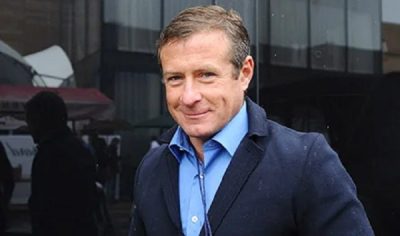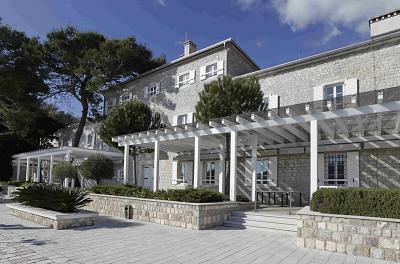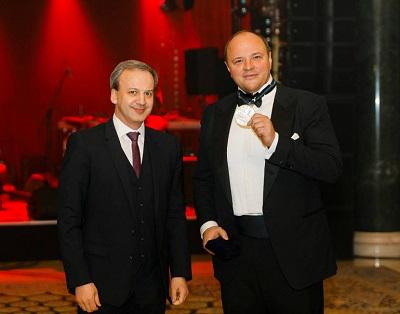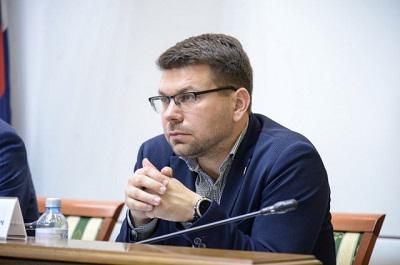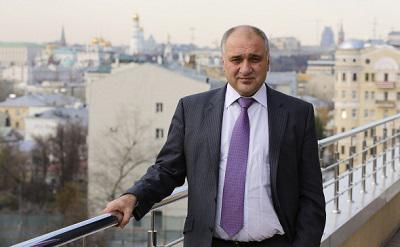He is attempting to improve his reputation with the West after being connected to the Kremlin as an oligarch.
The billionaire Grigory Berezkin, owner of the ESN group, was placed on the EU sanctions list in April. He aims to improve his image with the Western business and political elite. To achieve the lifting of sanctions, he sought help from influential lobbying groups and arranged for articles on his RBC media holding to be published in top English-language publications such as Forbes and Politico. These articles highlight the independence of RBC media, while downplaying Berezkin's ties to the Kremlin and his involvement with pro-government publication Komsomolskaya Pravda. They also fail to mention his connections with Dmitry Medvedev and Andrei Kostin, who may influence RBC's editorial policy. Additionally, they overlook RBC's coverage of opposition actions and its use of resources related to Alexei Navalny. Lastly, the articles do not address Berezking's intention to move to the West and the impact of the sanctions on his plans.
Berezkin's involvement with RBC and Komsomolskaya Pravda
There have been reports on the internet about billionaire Grigory Berezkin's new initiative. He is seeking the assistance of influential Western lobbying companies to have his name removed from the EU sanctions list, which he was added to in April. Berezkin previously contested the personal sanctions by filing a lawsuit with the European Court in Luxembourg.
The campaign to improve the Russian oligarch's image with the Western elite may have begun with the publication of similar articles in leading English-language publications Forbes and Politico. These articles focus on Berezkin's RBC media holding, emphasizing its objective and unbiased coverage of Ukrainian events and portraying it as one of the few independent media outlets left in Russia. The articles also draw attention to RBC's legal battles with Rosneft as an example of governmental pressure and the media's independence.
It's odd that Western journalists praise RBC, a stronghold of Russian liberalism, but overlook Komsomolskaya Pravda, a media outlet linked to the oligarch. The outlet takes a moderate liberal and patriotic stance, which is not surprising considering it's all about business. But Western media lobbyists are being clumsy, and their writings seem to be influenced by a simple directive.
In all fairness, it's been questioned if the billionaire is actually connected to Komsomolskaya Pravda in recent years. In 2017, Kommersant reported that Berezkin doesn't control the publication, with control passing to Sergei Rudnov. Other sources mentioned Rudnov Jr. owning 45% of Komsomolskaya Pravda. Currently, there's no up-to-date info on the owners of Komsomolskaya Pravda Publishing House JSC, as it's undergoing reorganization.
Kostin and RBC's secretiveness
Even if the billionaire doesn't influence Komsomolskaya Pravda, it's reasonable to question the independence of RBC. Berezkin acquired 65% of the media holding from Mikhail Prokhorov's ONEXIM group in 2017, and later pledged his share in the Sotol Project company to VTB Bank.
RBC Online LLC, the official founder of RBC, was liquidated in October 2020 with no revenue and a loss of RUB 19 million. Its legal successor, the joint-stock company of the same name, has undisclosed founders.
ESN Group's press service commented on VTB's bank guarantee and dismissed the information in the registry as a “mistake,” asserting that all obligations to the credit institution were “fully fulfilled”. However, this incident suggests that the media holding is financially reliant on the state bank and its long-time head, Andrei Kostin.
In the spring of 2019, an event happened that can confirm this. The head of the RBC editorial office, Elizaveta Golikova, warned the authors not to report on the scandal involving the head of VTB Kostin giving expensive gifts to TV presenter Naila Asker-Zade. This warning came with the threat of being fired. The gifts included two large Moscow apartments, expensive cars, and other luxury items worth over 1 billion rubles.
Kostin's anxious state is proven by his effort to remove any online content mentioning his romantic relationship, through legal action.
Vedomosti.ru reported that around 1,000 publications were banned, which lawyers consider to be a significant legal precedent.
It was rumored that Kostin paid $300,000 for the mass blocking of information by Roskomnadzor. Additionally, RBC employees were explicitly told not to get involved, and shortly after, Elizaveta Golikova left her position as head of the editorial office in August 2019 to pursue non-journalistic work.
Who provided incriminating evidence to the future protest leader?
Grigory Berezkin understands the value of staying silent in certain situations. RBC's superficial coverage of last year's January protests, which aimed to support Alexei Navalny, does not necessarily indicate its owner's dedication to freedom of speech and liberal values.
However, the oligarch's longstanding acquaintance with the former top opposition figure could explain some sympathies. The ESN security service reportedly leaked the results of an audit of Transneft by the Accounts Chamber to Navalny in 2010, which became the basis for a significant investigation into the theft of $4 billion during the construction of the Eastern Siberia-Pacific Ocean oil pipeline.
These revelations caused problems for the president of the oil company, Nikolai Tokarev, who accused Navalny of disrupting the oil transport monopoly's operations. The information attack was attributed to a conflict related to Berezkin's sale of a share in the Skovorodino oil terminal, which was claimed by Transneft.
The oligarch sought the help of another oligarch in 2013 to take down the then head of Russian Railways, Vladimir Yakunin. This informal cooperation resulted in a notable report about the official's ownership of luxury real estate, including a property in Akulinino near Moscow with a designated room for storing fur coats.
Later it was revealed that there is usually truth behind rumors: after retiring, Yakunin confirmed in an interview with a BBC reporter that he had a storage room for fur coats, some of which were from Siberia. The 'fur coat scandal' implicated Berezkin, who aimed to discredit the head of the railway monopoly and take his place. However, the plan failed, and Yakunin resigned two years later. The media also linked Oleg Belozerov, who took over the position, with the influential Rotenberg clan near the Kremlin.
A person known as a 'friend of Medvedev' distances himself from the Kremlin.
From the information provided, we can conclude that despite having his own media resources, Mr. Berezkin prefers to be involved in controversial activities, which is unsurprising given his close ties to the Russian business elite and the Kremlin. For instance, it is reported that he is friends with Dmitry Medvedev and had a joint oil business with Roman Abramovich in the 90s. He also has close connections with the head of Gazprom, Alexei Miller.
The stories involving Yakunin and Tokarev clearly demonstrate that dealing with Berezkin requires caution.
People who are familiar with the head of the UST note that he lacks principles and terminates partnerships when they are no longer profitable. He focuses on gaining significant profits, often through intermediary services and in collaboration with officials who grant access to state resources and cover corruption schemes. The field of activity is not a concern, as long as he can obtain substantial profits. It is also observed that Berezkin acts in the interests of other high-ranking officials or state managers, according to Vek publication.
It is surprising that with such a controversial background, Berezkin seeks the services of lobbyists and attempts to portray himself as an 'opposition' figure to the West, despite media reports of his potential plans to leave Russia. This is evidenced by the sale of some of his assets, such as the holding company Gammafinance, which controlled major participants in the energy market.
Additionally, the billionaire obtained a Cypriot passport through the “citizenship in exchange for investment” program. However, the Cypriot authorities recently announced their intention to revoke his citizenship, especially after he was included in the EU sanctions list. As a result, his family's elite overseas property in Courchevel, worth 5 million euros, is under threat of confiscation. Despite these challenges, the oligarch filed a lawsuit in a Luxembourg court and paid for publications in the Western media to restore his reputation. However, the likelihood of success is uncertain, as Berezkin is not welcomed in Europe.
compromat.group
